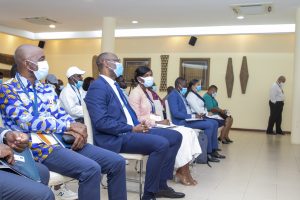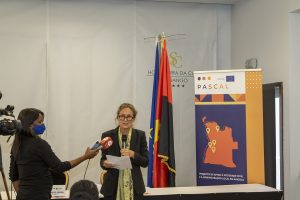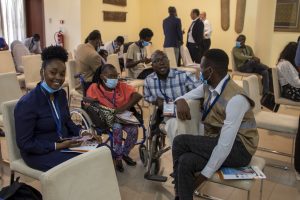
10/06/2022
Under the slogan "Leave no one behind", the PASCAL Project promotes citizen participation in Angola's political and public life
After the official launch in the city of Luanda on 2 February this year, the European PASCAL project, co-led by the FIIAPP, held two days of meetings in May with local actors in the other provinces where it works: Benguela, Huambo, Huila and Malanje.

Consultation meetings with provincial and municipal administrations and civil society organisations (CSOs), project presentation sessions and training workshops on decentralisation were held there.
The objective of these activities was, on the one hand, to officially introduce the project at the local level, and to inform and train on the central themes of the project: government participation, local governance and decentralisation in the country. On the other hand, the aim was to gather opinions, reactions, as well as the expectations of the invited parties and suggestions for the good development of the project.
The European Union Delegation in Angola, the Ministry of Territorial Administration and the European agencies implementing the project, FIIAPP and CPMA, were represented.

The Ambassador of the European Union in Angola, Jeannette Seppen, who was present in the province of Huila, said that “the programme can pave the way for decentralisation, but above all for better social and economic development of the territories and reduction of inequalities”.
For their part, local administrations and civil society have welcomed the events with interest, with representatives from the 25 municipalities included in the project and more than 50 CSOs, including youth, women’s and disabled people’s organisations, groups that the PASCAL project focuses on in particular.

These activities have created a space for dialogue between local actors and have enabled PASCAL members to have a better understanding of the local reality. All the knowledge acquired will be essential to adapt the response intervention to real needs and contribute to a more inclusive Angolan society in terms of participatory governance.



